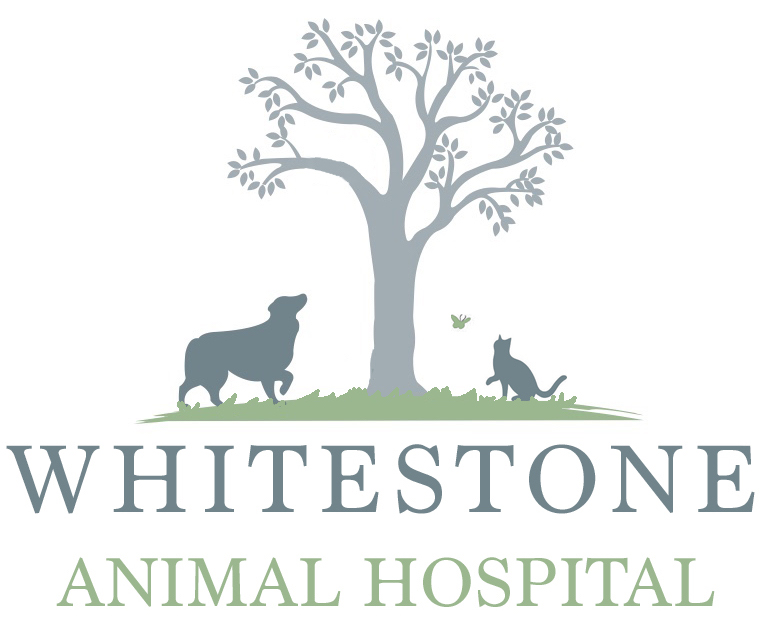Vaccines
AppointmentCat Vaccines
FVRCP: Feline Viral Rhinotracheitis, Calici Virus, and Panleukopenia is given in right shoulder
This vaccine covers two upper respiratory diseases (Rhinotracheitis and Calici). Panleukopenia causes life-threatening vomiting and diarrhea. It can be in the environment for years, is very contagious and potentially brought in on your shoes. It is treatable but has a high mortality rate (a lot of kittens die from disease).
*Given every 3-4 weeks until 16 weeks of age for kittens otherwise adult cats need an initial vaccine and a booster. We booster again at one year of age then give every three years until they are seniors where we stop giving this vaccine.
FELV: Feline Leukemia is given in left hip
-A virus they get from their mothers or from fluid contact with other cats. This vaccine is a must for outdoor cats. All it takes is a new cat moving into the neighborhood and attacking your cat and your cat will have a disease that is incurable. Cats can live with this disease for several years or it can make them ill. It is good to know your cat’s status so that we can better treat him/her if they get ill and discuss how to make sure your kitty doesn’t infect others.
-If your kitten is going to be 100% indoors then we will have a discussion on whether or not you want to vaccination him/her as a kitten then stop after his/her one year visit or not vaccinate at all. In households where there are opportunities for adventurous kittens to get out then we recommend getting the vaccine until they are one year of age then stopping. This is the age that they are most susceptible to this disease and will give you and your family a year to figure out if your cat is an escape artist or a homebody.
*This vaccine consists of a series of two vaccines when a cat/kitten first gets it then once a year for life if they are outdoors. It has not been shown that this vaccine lasts longer than one year as we suspect with the FVRCP vaccine.
Rabies: Rabies is given in right hip
Rabies is quite common, and our skunk and bat populations but can be carried by most wildlife mammals. We get questions all the time about vaccinating cats that are going to be 100% indoors. Your cat is not likely to get rabies inside your home, although there are some crazy stories of people waking up to their cat playing with a dead bat that somehow got into the house! We have story after story of situations that have occurred where cats weren’t vaccinated and bit someone. If your cat isn’t vaccinated and bites someone, even accidentally, then your cat could end up being quarantined for 10 days.
*Can be started after 12 weeks of age.
**Given once a year. We don’t currently carry the 3-year Purevax due to lack of interest/cost at this time.
Notes about Feline Vaccines
- We only use Merial Purvax Vaccines that are not adjuvanted and have been recommended by the Association of Feline Practitioners
- You may have read above vaccines causing tumors in cats. Since changing to this Purvax line over 15 years ago, the rate of vaccine-related sarcomas has greatly diminished.
- Most cats handle vaccines without issue but occasionally can become mildly lethargic for 12-24 hours as their body builds an immune response to the disease. Please let us know if your cat has any issues or you have questions.
Dog Vaccines
DOG VACCINES: each dog’s vaccine schedule is customized to their individual needs. Dogs that have had reactions to vaccines in the past or who are smaller than 5 pounds typically do better with their shots spread out with 3 weeks in between shots. Care has been taken to pick out vaccines of high quality with companies that stand behind their vaccines. Reactions such as tenderness at the sight of vaccine or a slight fever can happen but usually resolve in 24 hours. Occasionally vaccines can cause a more severe reaction but this is really rare. The core vaccines
Rabies: is common here in the state of Texas with bats and skunks being the most common although several species of wildlife have been known to carry this deadly virus. This virus comes from a bite from another animal or from your pet playing with a deceased animal that may have had the virus. This disease is deadly to animals and people so there is legality surrounding this vaccine. Puppies are old enough to get the vaccine after 12 weeks of age. It needs to be
DHPP: stands for Distemper, Hepatitis, Parvo
Lepto: we see a lot of this disease in Central Texas. It is spread through urine from wildlife to dogs. This vaccine is a little different from the other vaccines as it doesn’t give immunity for more than 15 months and needs to be
Bordetella (Kennel Cough): is often required by boarding and grooming facilities as it is most common in dogs that are in close
There are two options
Bivalent Flu: there have been several flu outbreaks in different parts of the country over the past few years. This vaccine
Crotalus (Rattlesnake): we carry this vaccine due to demand. It is a hard vaccine to test to see if it works. A large number of people who hunt with their dogs and are exposed to Rattlesnakes with no veterinary help close by, feel that this vaccine helps. There are no studies showing if it does work or not because snake venom can change each season, depends on if they just ate or not and they type of bite the snake did. This vaccine is given in a series of 2-3 depending on weight 3-4 weeks apart and then once a year. It is recommended that it be given 2 weeks apart from other vaccines.

Address

Contact

Hours
Mon-Fri: 8:00 am - 6:00 pm
Sat: 8:00 am - 12:00 pm
Sun: Closed
*We close for lunch from 12:30pm to 1:30pm. Appointments during this time are by special request only.
